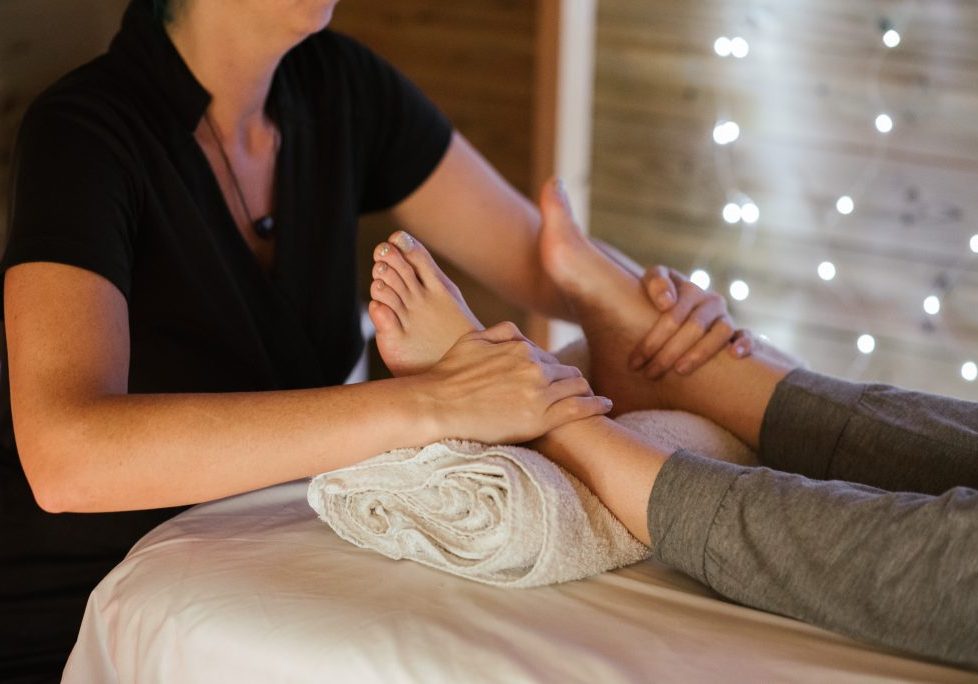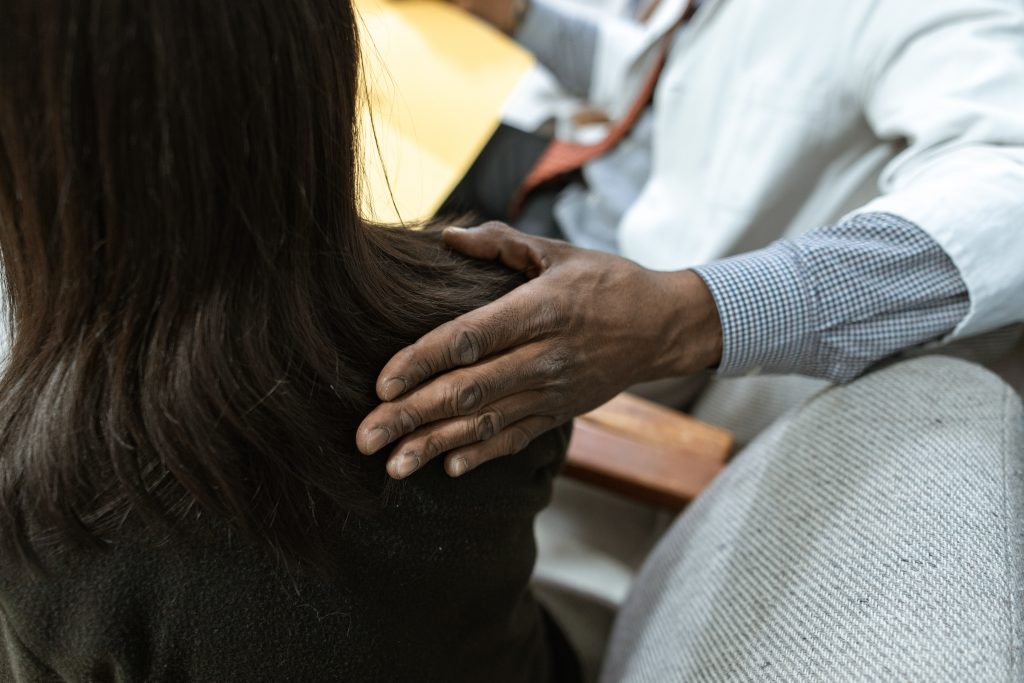Physical Therapy Services
- Multiple Scleorsis
- CVA
- Deconditioning
- Parkinson's Disease
- BPPV
- Vertigo
- Post Concussion Management
- Return to Sport Testing
- Pre-Participation Testing for sports and recreational athletes
- FMS
- Post Concussion Management and return to sport
- Running Analysis
- Balance Rehabilitation
- Gait training (with or without assistive devices)
- Preop/Post off training
- Work Hardening/Conditioning
- Myofascial and Trigger Point Release
- Kinesio Taping
- Cupping
- TPDN
- Ankle
- Lumbar spine
- Cervical spine
- Knee injuries
- Hip injuries
- Plantar fasciitis
- Shoulder injuries
- Wrist/hand
- Tennis elbow
- Pre op
- Post op
- Total joints
- TMJ
- Pelvic Floor Rehabilitation
- Ergonomics: With the increased prevalence of people having to work from home, ideal work station set ups have been less than optimal resulting in an increase in neck and back pain.
- Level up Live (Telemedicine)

FAQ
What we do is assess the way your whole body moves throughout a variety of tasks to identify and distinguish from normal movement any abnormal or faulty movement patterns, as well as any muscle imbalances or range of motion deficits you may have. We then determine if physical therapy or a fitness program tailored to your needs is necessary to address any deficits.
Pre-participation screens are important to be able to distinguish dysfunctional movement from normal movement during pre-participation or preseason screenings, as well as during post injury or post operative rehabilitation to address any muscle imbalances, compensatory strategies or faulty movement pattern to minimize stress or strain on body that could potentially result in future injuries.
Absolutely! We are a cash based service model which means we have a set price per visit, which includes a full session of 1 on 1 care with your therapist. See pricing link for details.
As a cash based model we ask for a set fee per session so that there is no copay, co insurance, or surprise bill sent to you at the end of your therapy. We will provide you with a Superbill at the time of service, and you may submit that invoice and receipt to your insurance company for reimbursement. The invoice has all of the necessary information (business name and address, tax ID, national provider identification, license numbers, etc.) as well as the patient’s ICD-10 (diagnosis) and CPT (billing) codes. You may choose to submit bills following each visit, one time per month, or at any other interval, typically up to one year following your treatment visit.
We believe in quality care over quantity. We provide 1 on 1 quality therapy for 1 hour with you and your therapist; no techs providing your care. We allow for individuals to pay a modest out of pocket amount up front so no surprise bills get mailed to you at the end of your episodic care and we provide a Superbill for you to submit to your insurance company for reimbursement for any cash services covered.
We are a Physical Therapy clinic that also provides health and wellness services and classes in the future. We provide sport pre and post tests, balance tests, Trigger point dry needling, cupping, and sports massage to name a few.
Be on the lookout for future health and wellness classes to fit all age/activity level!
Pelvic Health Rehabilitation
How Do We Help?
The Goal of Pelvic Health Physical Therapy is to ease your symptoms so that you can get back to life.
Your Pelvic Health Physical Therapist may use several techniques to assist in your recovery to include but not limited to the following:
Your therapist will spend time educating you about your pelvic floor anatomy and diagnosis. They will also spend time talking to you about potential habits and/or hygiene that may affect your symptoms.
You will be taught specific pelvic floor exercises that will best help your symptoms. While Kegels are good, they may or may not be what your body needs. Some individuals have overactive muscles and need a different form of treatment. Kegels are a form of strengthening exercise, which may exacerbate symptoms in individuals you already have strong and overactive muscles.
Similar to manual therapy used for other body structures, your Physical Therapist may use hand-on techniques internally or externally that help to provide trigger point release, stretch muscles, assist with improving posture, circulation and/or mobility.
Your therapist may ask you to fill out a bowel or bladder diary to help determine if there are any potential lifestyle habits, food or irritants that may be contributing to your symptoms. This could also include toileting or urge suppressant techniques.
This is a technique that allows an individual to see how their pelvic floor muscle are working. To do so, a sensor is inserted vaginally in women or through the rectum in men and/or women depending on the diagnosis. This technique is often only used in individuals who have very weak pelvic floor strength, unable to voluntarily contract musculature and/or have difficulty doing so.
This is a low voltage electrical current that can be used to teach individuals how to coordinate muscle contraction and/or for muscle inhibition. As with Biofeedback, this technique is often only used in individuals who have very weak pelvic floor strength, unable to voluntarily contract musculature and/or have difficulty doing so.
These tube-shaped devices can help women learn to relax the pelvic floor muscles to allow for ease and decreased pain with penetration. Women who have experienced gynecological or sexual trauma may find them helpful. Pelvic Floor Evaluation should be performed prior to use to determine if this is an appropriate treatment.
FAQ
All individuals have a pelvic floor, which consist of muscles, connective tissue and nerves that support the pelvic organs, assist in bowel and bladder control as well as contribute to sexual function. The pelvic floor muscles are located between the tailbone and the pubic bone.
The short answer is that many people of varying ages, gender and activity level could benefit from a pelvic health assessment.
Pelvic Dysfunctions are more common than people think. Approximately 25 million individuals suffer from pelvic floor dysfunctions, many of which never seek medical care due to embarrassment and/or belief that it is “Normal”.
However, anything outside of normal function is NOT NORMAL. Yes, with aging the body slows, however leakage, difficulty urinating or having a bowel movement and/or pain is not normal under any circumstances.
We often think that aging and pregnancy are the causes, however these are not the only population of individuals with pelvic floor dysfunction.
For example, Female Athletes specifically, are almost 3x more likely to suffer from a pelvic floor dysfunction compared to sedentary females. Athletes of all genders who participate in sports that involve high loads or high impacts such as CrossFit, weightlifting, running, gymnastics, ect, can potentially result in pelvic floor dysfunction. This is often due to the demands of the activity and increased intra-abdominal pressure due poor breathing coordination which results in increased pressure placed on the pelvic floor musculature. Overtime, this can result in leakage or other pelvic floor dysfunctions.
Several symptoms may be a sign that you have a pelvic floor dysfunction. If you have any of these symptoms, you should tell your healthcare provider or schedule with our Pelvic Health Specialist.
- Frequently needing to use the bathroom
- Difficulty using the bathroom such as difficulty initiating urination or straining during bowel movements
- Leaking of urine or stool
- Pain with urination
- Pain with intercourse
- Low back pain without known cause
- Ongoing pain in pelvic region, genitals, or rectum with or without bowel movement
We currently treat all individuals equally regardless of gender, race or age.
- Due to staffing and inability to provide a chaperone we currently perform internal examinations on women only.
- We can treat men externally and assist with symptom management. If an internal examination is found to be necessary-individuals are responsible for bringing an additional individual they feel comfortable being in the room for observation/chaperone for the protection of themselves as well as our providers.
- Individuals under the age of 18 must have a Parent or Guardian provide permission as well as remain in clinic during treatment sessions.
An individual may be referred to pelvic floor physical therapy for a variety of reasons such as:
- Fecal or urinary Incontinence (leakage)
- Difficulty with urination or bowel movements
- Constipation
- Acute or chronic pelvic pain
- Pain with intercourse
- Vaginismus
- Endometriosis
- Painful ejaculation
- Premature ejaculation
- Uterine or rectal prolapse
- Prostatitis
- Erectile dysfunction
- Pain post confirmation surgery
- Post abdominal surgery
- Interstitial cystitis
- Post Partum
This is not an all inclusive list of pelvic floor dysfunctions, there are many other treatable disorders. If you are concerned about your pelvic floor, contact our pelvic health specialist for an assessment.
Schedule Your Appointment Today
Click on our booking link below or give us a call.
Phone: (434) 939-9524
Fax: (434) 939-9679
Email: levelupptvaoffice@gmail.com

Our Address:
6420 Seminole Trail
Suite U2
Barboursville, VA 22923
Follow Us On Social Media
